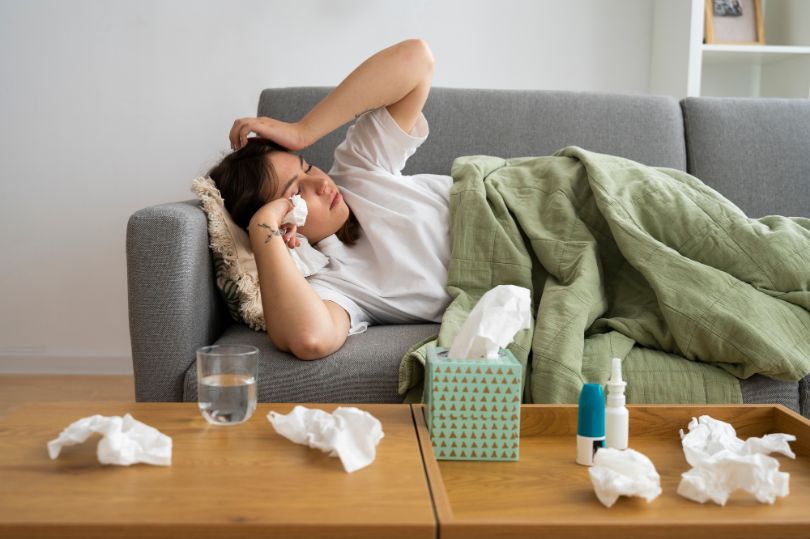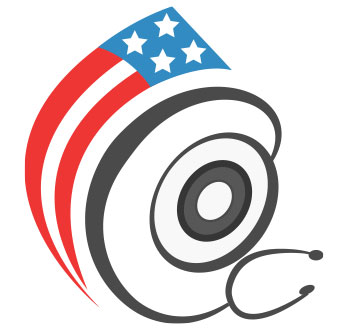Fight the Feeling Under the Weather: Home Remedies and Medications for Colds and Flu
Tried-and-true home remedies can help you feel better when you find yourself “under the weather” with a cold or the flu. And a few over-the-counter medications can help relieve nasty symptoms.
First, do you have a cold or the flu? Chances are, if you had a flu shot, you don’t have influenza (or have a mild case). You can still get vaccinated to protect yourself for the rest of the flu season, which runs through April, according to the CDC.
The symptoms are confusing, but here’s a simple test: People with the flu get sick more suddenly, look much sicker, and feel as if they really were hit by a truck. Higher fever, body aches, extreme tiredness and dry cough are more likely to be flu, according to experts at eMedicineHealth. A runny or stuffy nose, maybe a slight fever, and cough are hallmarks of the common cold.
In either case, antibiotics are not what you need. In fact, taking these strong prescription medications weakens their effectiveness when you might need them. Colds and flu are caused by viruses. Antibiotics cannot fight viruses. So reserve them for bacterial infections, and your doctor is the best judge of that. Antibiotics taken “just in case” still do no good unless your doctor determines you should head off a bacterial infection if you have a chronic condition.
Often, what you need to ease the symptoms of colds and flu can be found right at home – where you should be so you aren’t coughing and sneezing and infecting others. Mary Windle, PharmD, Pharmacy Editor of eMedicine, Inc., and Adjunct Assistant Professor at the University of Nebraska Medical Center, College of Pharmacy, offers this prescription to feel better fast:
Treating Colds and Flu: What You Can Do at Home and When to See a Doctor
For chest congestion:
- Drink plenty of fluids (8 to 10 cups a day) such as water, sports drinks, herbal teas, fruit drinks, or ginger ale. Even clear soups – yes, chicken soup. Fluids help break up congestion, prevent dehydration, and keep your throat moist.
- Inhaled steam can ease congestion too. Create steam with a humidifier, or steam up the bathroom by running a hot shower. Or create a mini-steamer by boiling water on the stove and placing the pot on a table. Drape a towel over your head and the water (careful!) and inhale the steam. The effect is enhanced if you add a half teaspoon of Vicks VapoRub, 1-2 drops of eucalyptus oil or a few slices of ginger to the boiling water.
For nasal congestion:
- Relieve clogged nasal and sinus passages caused by excessive mucus with either decongestant pills or liquid medication or with a nasal spray. Oral decongestants you can buy at your drug store contain pseudoephedrine (with brand names such as Sudafed or Triaminic). This ingredient can cause an increase in heart rate and blood pressure and may keep you awake because it’s a stimulant. Anyone with high blood pressure, heart disease, diabetes, thyroid disease, or glaucoma (high pressure of the eye) should not use these decongestants. Depending on state law, you may have to ask and sign for products containing pseudoephedrine because it is used in making illegal street drugs.
- Nasal spray decongestants do the same thing and have the advantage of going directly to the problem area – your nose. The active ingredient is oxymetazoline found in brand names such as Afrin, Dristan nasal spray, Neo-Synephrine, and Vicks Sinex. Do not use these sprays longer than 3 days or you will risk getting a rebound effect – your nose will become stuffy once again. These are best taken following a hot shower and lots of nose blowing to clear out the mucus as much as possible. Nasal sprays are a good alternative to pseudoephedrine at bedtime because they won’t interfere with sleep.
For fever and pain, body aches, and tiredness:
- Rest in bed. And if you’re home in bed, you’re not at work or around others and spreading your germs.
- Over-the-counter medications such as acetaminophen (Tylenol) or ibuprofen (Advil or Motrin) can help decrease fever and ease sore throat pain and body aches. Never give a child aspirin or medications containing aspirin due to the risk of Reye Syndrome.
For cough:
- For a dry hacking cough, you may choose a medication that contains a cough suppressant – to block the cough reflex and keep the cough from waking you at night. Look for over-the-counter medications that contain dextromethorphan, like Benylin DMD.
- For a cough that produces excessive mucus, or phlegm, you may want to use an expectorant to loosen secretions so you can cough them into a tissue. A cough is a reflex. When your airway passages are irritated, you cough. Guaifenesin is the most common active ingredient in over-the-counter expectorants (for example, Benylin DMDE). Help them work by drinking plenty of fluids.
For sore throat:
- A warm salt-water gargle can relieve a scratchy throat. Dissolve about half a teaspoon of salt in a glass of warm water.
- Lozenges, mouthwashes, and sprays that contain a numbing ingredient such as benzocaine, phenol, or menthol can ease the pain. Some people think lozenges containing zinc relieve cold symptoms, but the benefits are not proven, and zinc can cause stomach upset and has an unpleasant taste.
When to contact the doctor: Call your doctor if your symptoms of cold or flu last more than 10 days, if you’re not getting better, if your fever goes above 102 degrees F, or if you feel shortness of breath, or other worrisome symptoms.
For more information on colds and flu, self-care tips, and a searchable database of consumer health information, go to http://www.emedicinehealth.com/ (search the site for Understanding Cold and Flu Medications).






